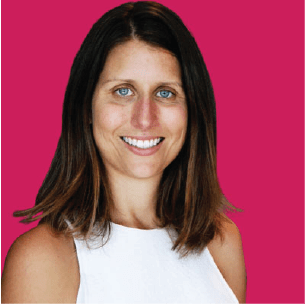By Dr Nina Hood
It’s very rare that I find an education book that I recommend to just about everyone I speak to. And it’s even rarer that I would order multiple copies of a book so that I can give it to people because I think they’d benefit so much from reading it. But that is exactly what has happened with Jal Mehta and Sarah Fine’s book, In search of deeper learning; The quest to remake the American high school.
When trying to identify what it is that has made me enjoy this book so much, I think in part it’s because it speaks to me in all the various capacities in which I have been involved in education: as a school student; as a secondary school teacher; as an academic and researcher; and as a knowledge broker, attempting to bridge the gap between research and practice in education.
What sets this book apart from so many books in education is the scope of its agenda and the depth of its coverage. Unlike so many books in education that focus in on a single aspect of the school experience – teacher expectations, assessment, or grit – this book tries to capture high-schools in a more holistic manner. The use of a deep, sustained ethnographic approach, spending hundreds of hours in schools, observing and conducting interviews with teachers, students and school leaders is part of what enables this. But I think it also is the result of their focus, deeper learning, which seems to get to the heart of what school-level education is (or should be) all about.
I mentioned to a friend when I was half way through the book that I still did not have a particularly good idea of how Mehta and Fine were defining deeper learning. However, by the time I got to the end of the book, after reading the final few chapters, what they meant by deeper learning had become clear. In many ways it is a particular manifestation of what Richard Elmore calls the instructional core; the interactions between the teacher, students and content in the classroom, recognising that to improve student learning it is necessary to raise the level of content, increase teachers skill and knowledge and increase the level of students’ active learning of the content.
It was the discussion of what constitutes deeper teaching that particularly interested me. Mehta and Fine identified five characteristics common to teachers who created powerful learning experiences for their students. Included among them were a “stance toward teaching as an act of igniting interest rather than as an act of transmission” and “significant and substantive knowledge of their disciplines or fields”. In New Zealand, populist education rhetoric emphasises the first of these but downplays or at times downright rejects the second, instead emphasising the need for students to be identifying and building knowledge independently, to be following their own interests, all of which is enabled by the almost endless availability of information on the Internet.
However, in a contrary line of argument, Mehta and Fine suggest is that it is deep knowledge that enables teachers to create rich learning opportunities, it made them comfortable with ambiguity and not knowing all the answers, and their passion for their disciplines was critical for engendering passion and interest in their students. They go further too, to suggest that alongside substantive content knowledge (and pedagogical knowledge and pedagogical content knowledge), teachers also need to have experience doing the work of their fields or disciplines, so that they can bring this into the learning opportunities they design.
Throughout the book, Mehta and Fine include case studies of teachers who are doing just this, drawing on their extensive knowledge of their disciplines to create rich learning experiences. While these provide fascinating insights, I was also very aware that just reading these case studies would not be enough to help teachers to shift their practice towards deeper learning. Mehta and Fine themselves recognise this challenge and identify several approaches for addressing it. The first is the development of an apprenticeship model of teacher preparation whereby a beginner teacher is paired with an experienced teacher and learns from and with them. Another was through the development of social media groups that enabled like-minded teachers to connect and share ideas and learning. But ultimately, achieving deeper learning will need require further initiatives. It will require a rethinking of current assessment systems and the development of curricula materials to support teachers in their work. It will require a rethinking of how we structure schools, as well as the broader system within which they are located. It will require a rethinking of initial teacher education and the ways in which teachers are inducted into the profession. And, as Mehta and Fine suggest in their closing pages, it will require bravery and a collective joining together of all the actors involved in education, including educators, politicians, policy-makers, leaders, students, and their families, to recognise the need to rethink the what, the how and the why of teaching and learning.


